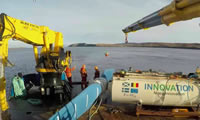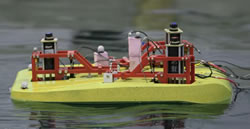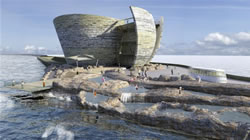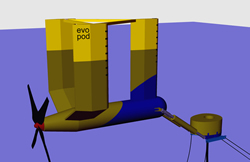New milestone in Australian tidal energy
Making waves: Shetland tidal power breakthrough is another world first for Scotland
NOVA INNOVATION DEPLOYS WORLD'S FIRST FULLY OPERATIONAL OFFSHORE TIDAL ARRAY IN SCOTLAND
11th Annual Ocean Renewable Energy Conference Embarks on Second Decade of Leadership, Experience, and Solutions
PTEC, A WORLD LEADING TIDAL POWER PROJECT, RECEIVES APPROVAL
This Device Could Provide a Third of America's Power
Minesto orders turbine prototype from SCHOTTEL HYDRO
EFFECTS OF MARINE ENERGY ON THE ENVIRONMENT
A Wave of Excitement for UK Marine Energy Industry
Ocean Power Technologies, Inc. Announces APB350 (A1) PowerBuoy Achieves Significant Performance Milestones
Eco Wave Power Receives EU Funding Approval for Wave Energy Power Plant in Gibraltar
Tidal power: An inside look at how it works
How a Manmade Tidal Lagoon Could Change the Future of Clean Energy
Natural Power and SeaRoc collaborate for EDF's Paimpol-Br�hat Tidal Farm
How floating turbines could harness the awesome power of the tides
Records 16 to 30 of 38
First | Previous | Next | Last
Featured Product




.jpg)

